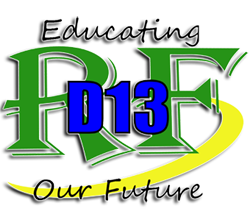School Board Elections
Board members will serve 4-year terms in accordance with the State election cycle (Spring of each odd-numbered year). The rotation includes 4 seats in one election followed by 3 seats in the next.
Responsibilities
No one person on the Board or group of persons acts in the name of the Board. When an item comes before the Board in the form of a motion, it is necessary that a majority vote be in favor of the motion in order for the Board to take action. All Board members must vote on each motion.
The areas of Board action include:
- Drafting policies for the operation of the schools.
- Employing a superintendent of schools.
- Authorizing the appointment of recommended teachers and administrators.
- Determining education standards and goals.
- Approving the curriculum as studied, developed, and recommended by staff.
- Securing funds for school operational needs, building programs, and authorizing expenditures.
- Expressing and representing the views of the community in matters affecting education.
- Interpreting the educational programs and needs of the community.
Consultants from the staff and members of the community often aid the Board in performing these duties.
Board Meetings
The Board of Education is the legislative body of the school district. Their meetings are held in public, but not as a public forum for open debate. However, this Board believes strongly in the rights of citizens to be heard. You may be heard in the following ways:
- The President of the Board will inquire at the appropriate time (under Public Comments) if anyone in the audience wishes to bring something to the Board's attention.
- Citizens may request time to speak by telephone or in writing to an agenda item.
- Citizens may write a letter to the Board, addressing it to the President or Superintendent. Such letters are copied and given to the Board members.
- Questions will be heard by either building or central office administrators any day of the work week.

